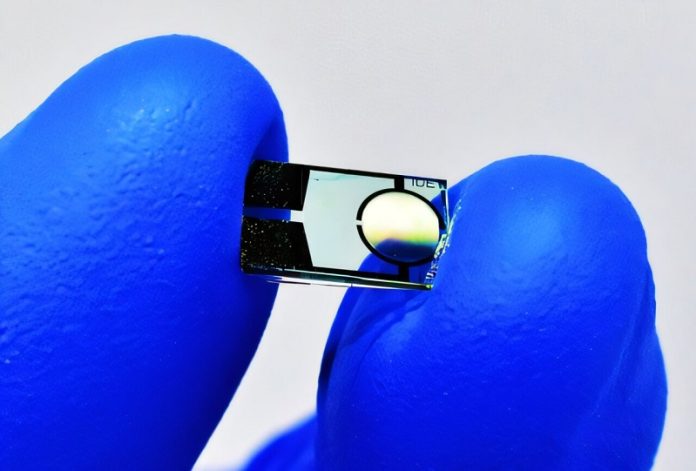
Hydrogen sensor. Credit: Thomas Anthopoulos.
As the world moves toward cleaner energy, hydrogen is seen as a key alternative to fossil fuels. However, hydrogen is clear, odorless, and highly flammable, making it difficult to detect and posing safety risks.
Now, scientists have developed a small, fast, and affordable hydrogen sensor that can detect even the tiniest hydrogen leaks in seconds—helping make hydrogen energy safer for industries, homes, and transportation.
The sensor was developed by scientists at The University of Manchester in collaboration with King Abdullah University of Science and Technology (KAUST) in Saudi Arabia. Their research was published in [_Nature Electronics_.](https://www.nature.com/articles/s41928-025-01352-y)
The new sensor uses a process called “p-doping,” where oxygen molecules increase positive electrical charges in a material.
When hydrogen is present, it reacts with the oxygen and causes a sudden drop in electrical current.
This change happens very quickly and is fully reversible, meaning the sensor can detect hydrogen leaks in real time at temperatures up to 120°C (248°F).
The sensor was tested in real-world situations, including:
* Detecting leaks from pipes
* Monitoring hydrogen in closed rooms after a sudden release
* Being mounted on a drone to find hydrogen leaks from the air
In every case, the new sensor was faster and more effective than existing portable commercial hydrogen detectors.
One of the biggest advantages of this sensor is that it is ultra-thin and flexible, meaning it can be easily integrated into smart devices for continuous monitoring.
This could help prevent dangerous leaks and make hydrogen-powered technologies safer and more reliable.
“This sensor could revolutionize hydrogen safety by making detection affordable, reliable, and widely accessible,” said Professor Thomas Anthopoulos, one of the scientists behind the project.
“I hope this technology helps build trust in hydrogen energy and speeds up its adoption in industries, homes, and transport networks.”
The research team is now working on improving the sensor’s long-term durability to ensure it can work in different conditions over time.
As the world shifts toward hydrogen-powered vehicles, homes, and industries, ensuring safe and reliable hydrogen use is critical.
This new sensor could be a game-changer, helping prevent leaks and accidents while paving the way for a cleaner, greener future.
_Source: University of Manchester._